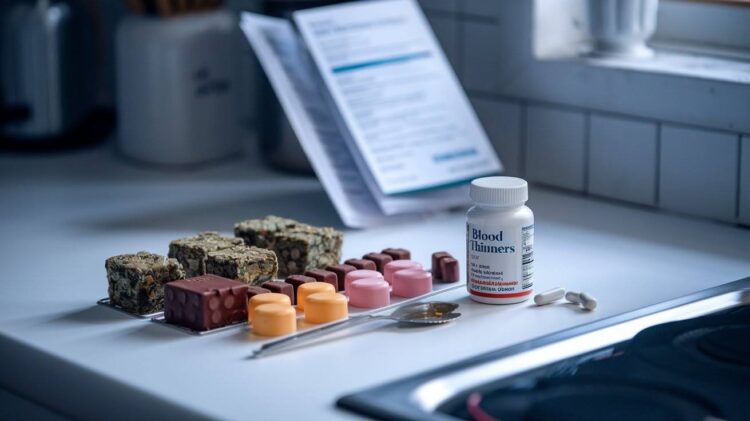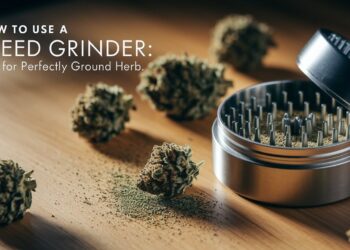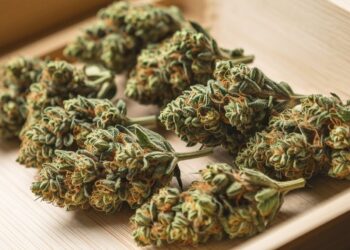Cannabis edibles are gaining attention for pain relief and relaxation. But if you’re on blood-thinning medication, the risks may not be so obvious. I’ve personally worked with patients and consumers asking whether edibles could affect clotting or interact with drugs like warfarin.
The short answer: they can. Cannabis compounds, especially THC and CBD, may impact how your body processes blood thinners. That’s why understanding the interaction is important. In this article, we’ll explain what the research says about cannabis and clotting, including potential side effects and red flags.
We’ve reviewed scientific studies and medical sources to give you facts you can trust. This guide is not a substitute for medical advice, but it can help you ask better questions and stay informed. If you use blood thinners, knowing how edibles fit into the picture could make a real difference in your safety.
What Are Blood Thinners? (Brief Overview)
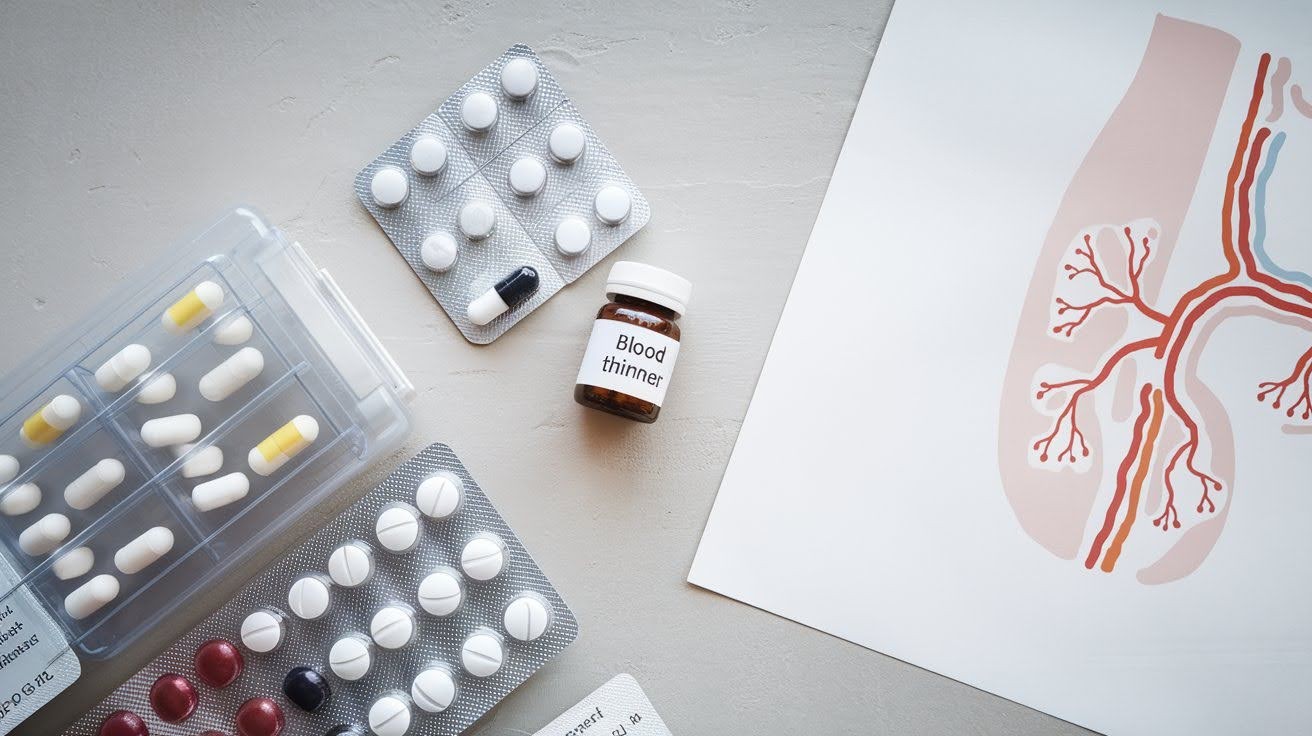
Blood thinners are medications that stop blood clots from forming. They also prevent existing clots from getting bigger. Here’s what you need to know:
There are two main types of these medications:
- Anticoagulants, such as warfarin and heparin, slow down the blood’s clotting process.
- Antiplatelet drugs, such as aspirin, prevent blood cells from sticking together.
Doctors commonly prescribe these medications for the treatment of heart problems. They also help prevent strokes. Many patients take them after surgery to avoid dangerous clots. But here’s the thing – these medications affect how your blood behaves.
That’s why mixing them with cannabis edibles raises important safety questions. Understanding this connection matters for your health.
Do Edibles Have Blood-Thinning Properties?
Edibles may affect blood clotting through various compounds. Understanding these potential interactions is important for your health and medication safety.
Current Research Findings
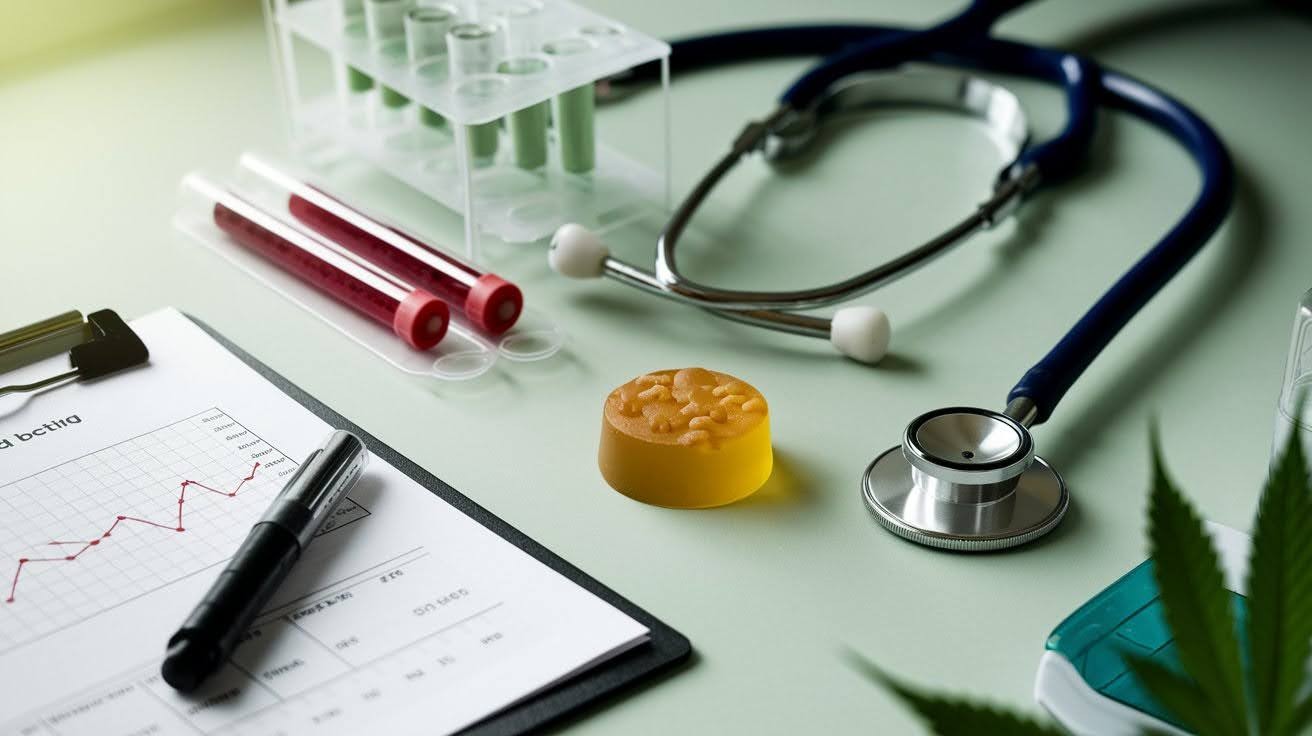
The truth is, we don’t have enough research to give you a definitive answer yet. Scientists have conducted several small studies on animals. Here’s what they found:
- A 2007 study on rats showed that THC and CBN might slow down blood clotting. However, there’s more to this story.
- A 2004 study found the opposite. THC appeared to accelerate blood clotting in that study. This shows how complicated cannabis effects can be.
More recent work studied rhesus macaques. THC reduces the ability of blood cells to stick together. However, it didn’t change overall clotting time. Studies on overweight rodents revealed something interesting.
THC, CBD, and CBN all seemed to prevent blood clots from forming. The problem? These are all animal studies. Human bodies might react differently.
How Cannabis Compounds in Edibles Affect Blood Clotting
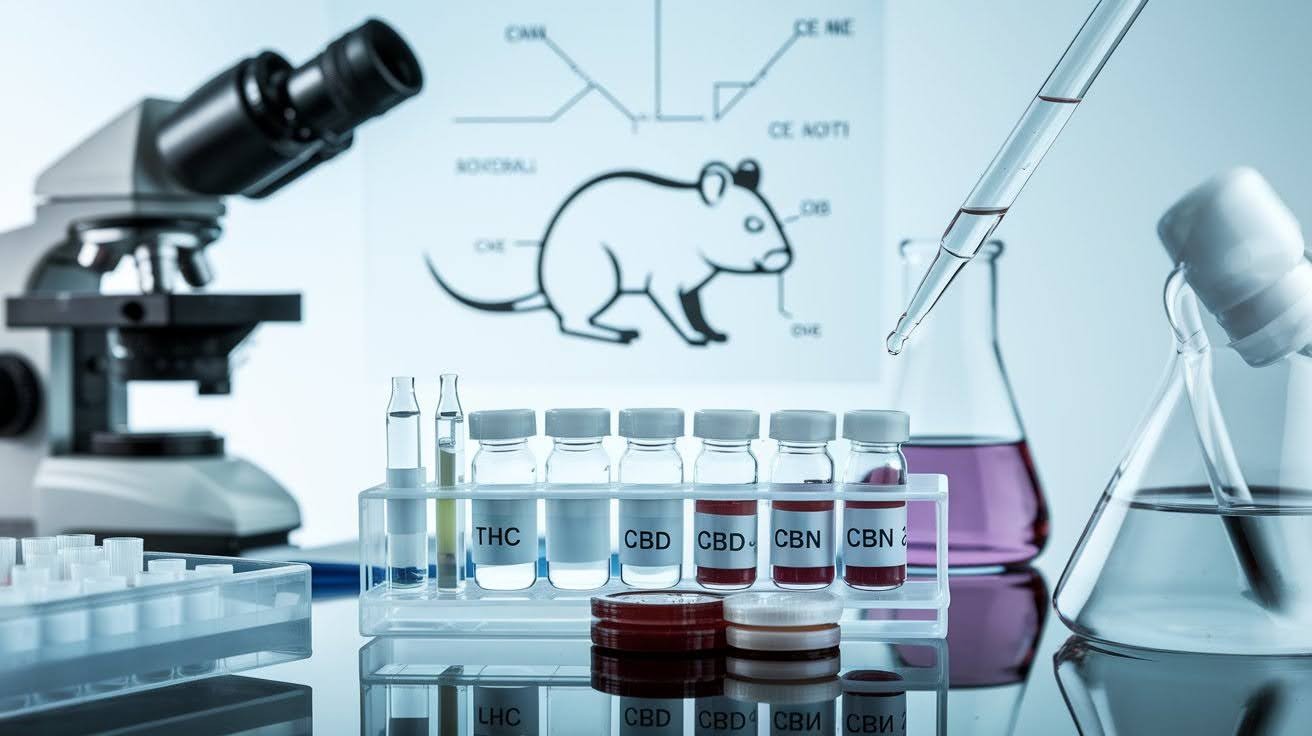
Different compounds in edibles affect your blood in various ways.
THC (Tetrahydrocannabinol):
THC shows anticoagulant effects in small lab tests. It might block thrombin, an enzyme your body uses to form clots. Some studies show that THC reduces how blood cells clump together.
But remember – the research is still limited.
CBD (Cannabidiol):
CBD also affects the thrombin enzyme. This enzyme converts fibrinogen into fibrin, which helps create clots. CBD may slow down platelet activity, which is necessary for normal clot formation.
CBN (Cannabinol):
Animal studies suggest that CBN may help prevent blood clots from forming. This compound appears in aged cannabis and many edible products.
Here’s the key point: All these compounds work differently in your body. The amounts in edibles vary widely between products.
Bottom line? We need more human studies to understand the real risks.
Edibles vs. Other Cannabis Consumption Methods
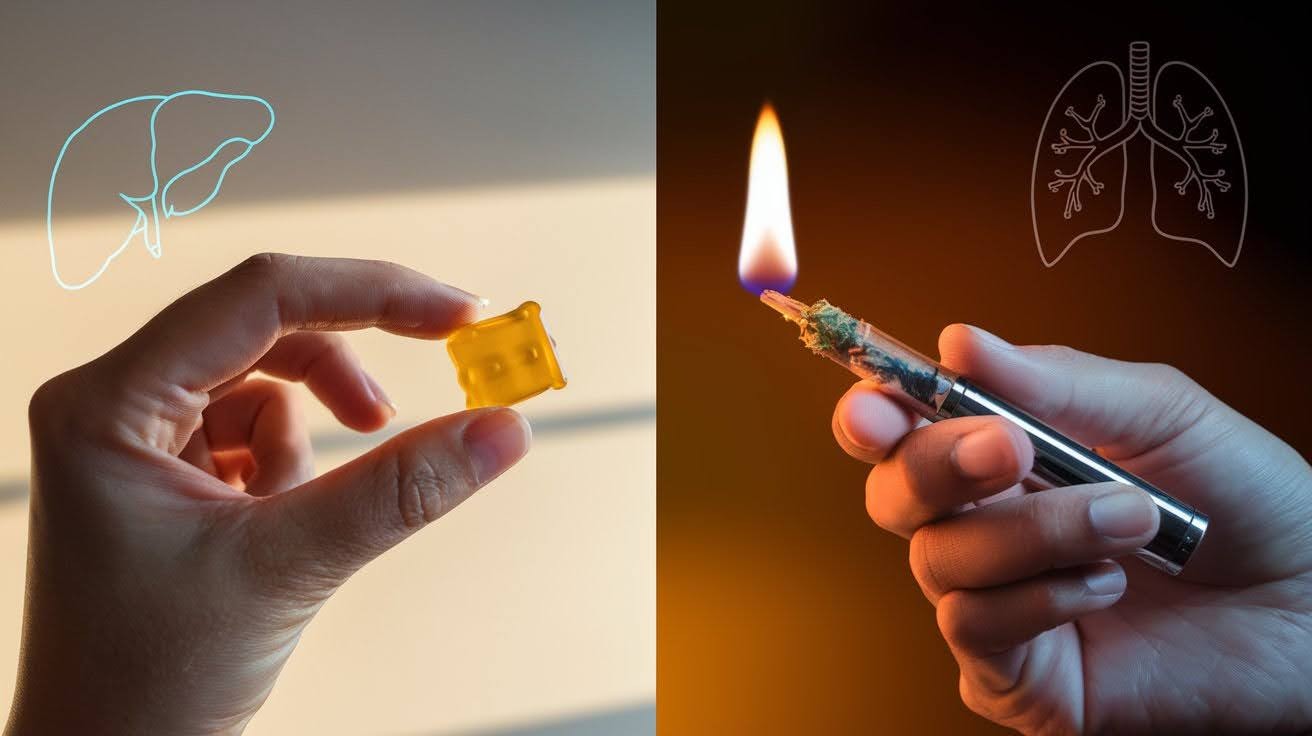
Edibles work differently from smoking or vaping. Here’s why this matters for blood-thinning effects. When you eat cannabis, it goes through your digestive system first. Your liver then processes the compounds.
This creates different effects compared to inhaling cannabis. The key difference? Edibles stay in your system for much longer. While smoking effects might last 2-3 hours, edibles can affect you for 6-8 hours or more.
This extended timeframe means that any blood-thinning properties may also last longer. Dosage control is trickier with edibles. You can’t easily adjust the amount once you’ve eaten them. Additionally, effects typically take 30 minutes to 2 hours to take effect.
This delayed onset causes some people to take more than the recommended dose before feeling the effects of the first dose. Bottom line: The longer-lasting effects of edibles might mean extended interactions with your blood-thinning medications.
Dangerous Interactions Between Edibles and Blood Thinners
Mixing edibles with blood thinners creates serious health risks. These dangerous interactions can cause bleeding complications or reduce medication effectiveness.
Liver Enzyme Complications
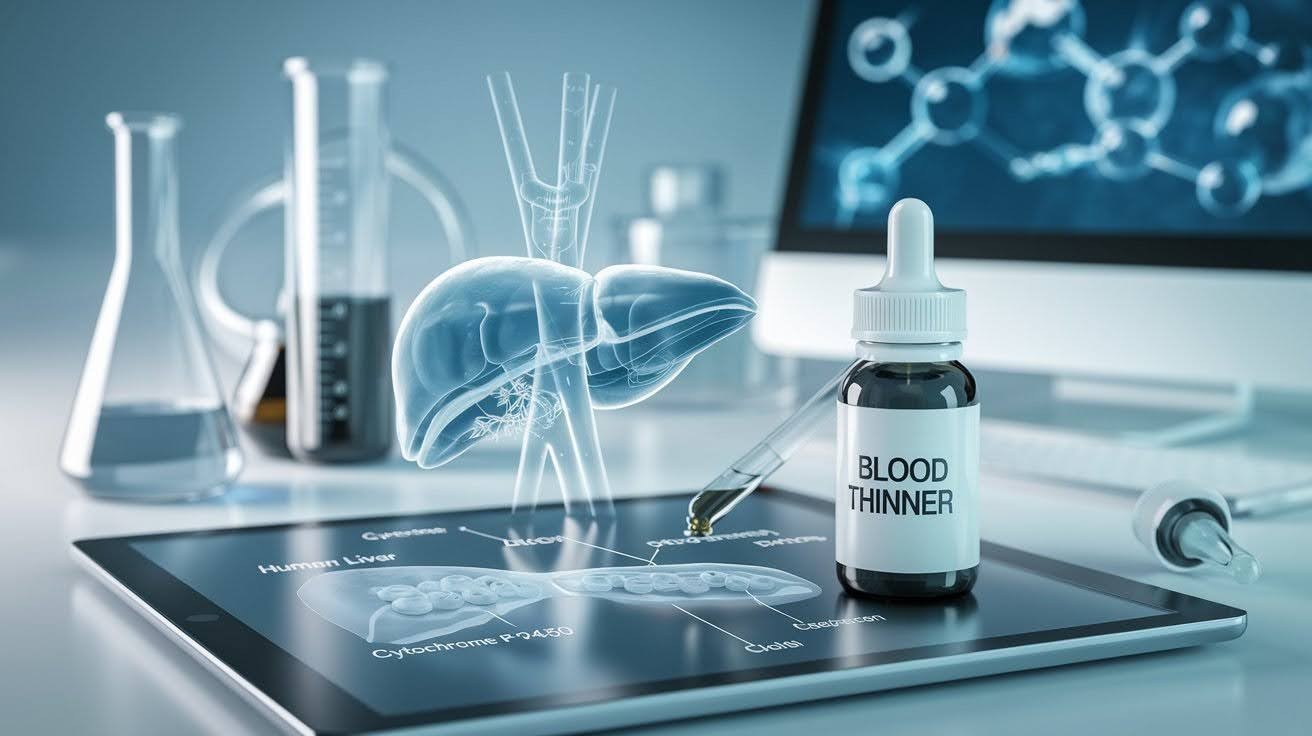
Your liver processes both cannabis and blood thinners. This creates a potential problem. Both substances utilize the same enzyme system, known as Cytochrome P450. Think of these enzymes as workers in a factory.
When they’re busy processing cannabis, they can’t work as efficiently on your blood-thinning medications. CBD is the biggest concern here. It blocks how your liver breaks down blood thinners. This means your medication stays in your system longer than it should.
The result? Your blood thinner becomes more potent. It might work stronger and last longer than your doctor intended. This can affect the effectiveness of your medication.
Sometimes it becomes too strong. At other times, the timing gets completely thrown off.
Here’s what’s alarming: You might not notice these changes immediately.
Documented Case Studies and Interactions
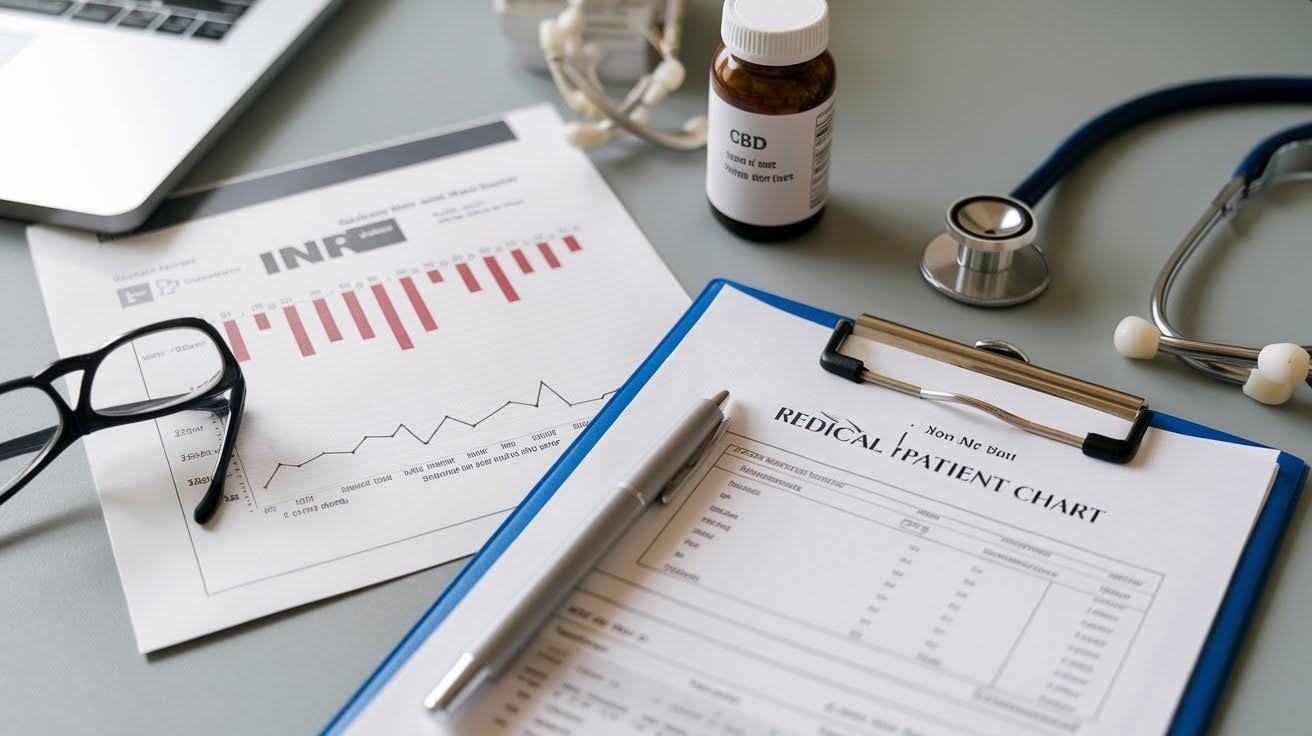
Real patients have experienced serious problems mixing these substances. A 2019 case study showed THC interfering with the CYP2C9 enzyme. This enzyme normally processes warfarin, a common blood thinner.
One documented case involved a CBD user who needed a 30% reduction in warfarin dose. That’s a significant change that could have caused bleeding problems. Cannabis also affects other medications. It can change how your body processes ibuprofen and naproxen.
Doctors have reported elevated INR values in patients using cannabis. INR measures how long your blood takes to clot. Higher numbers mean your blood is thinner than normal. This creates real bleeding risks.
Patients experienced prolonged bleeding that wouldn’t stop normally. One case showed a patient whose small cuts bled for hours instead of minutes. The problem is unpredictable timing. You may not notice these effects immediately after consuming edibles.
Bottom line: These aren’t theoretical risks – they’re happening to real people right now.
Health Risks and Bleeding Complications
Bleeding complications from edible interactions can be life-threatening. Understanding these health risks helps you make safer choices about consumption.
Types of Bleeding Risks
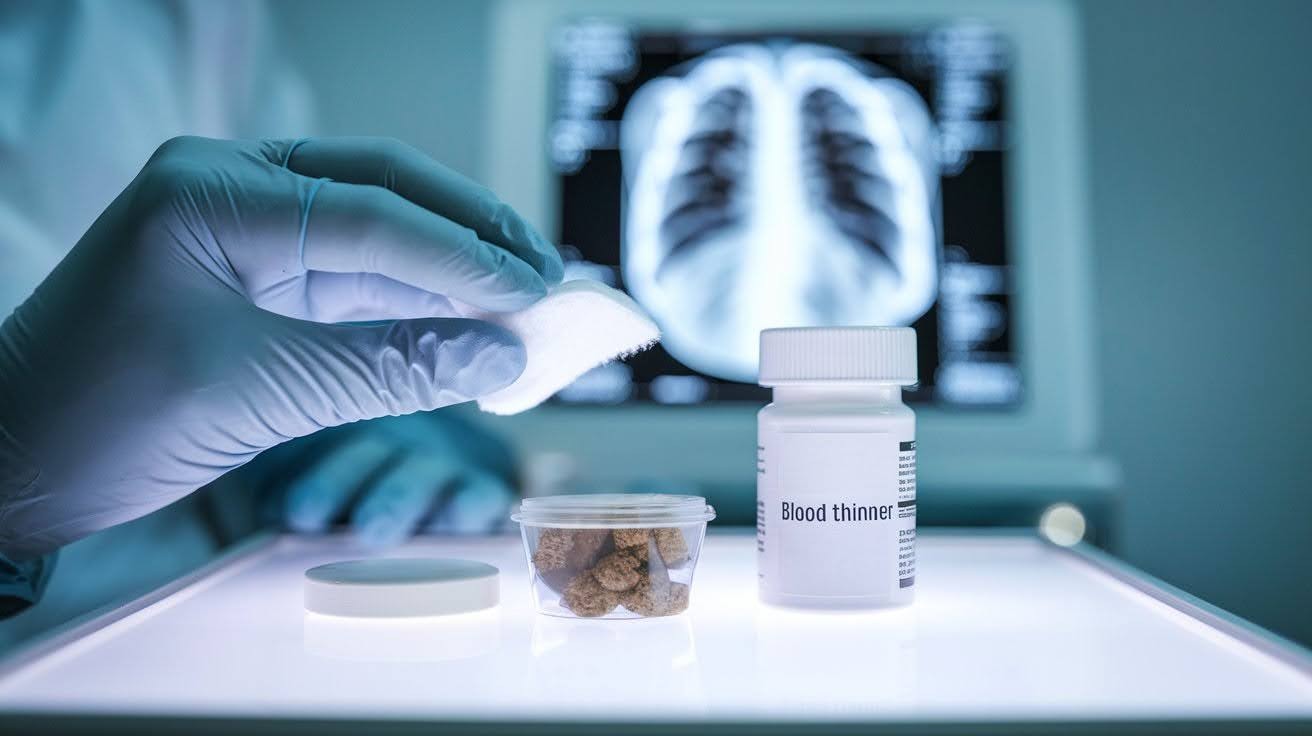
Mixing edibles with blood thinners creates serious bleeding dangers. Here’s what can happen to you. You face an increased risk of excessive bleeding from normal activities. Even small cuts might bleed much longer than usual.
Internal bleeding is the scariest risk. This type of bleeding occurs inside your body, where it is not visible. Doctors have documented rare cases of diffuse alveolar hemorrhage – bleeding in the lungs. This is uncommon but potentially life-threatening.
A 2021 review examined over 113,000 people who had undergone heart surgery. Those using cannabis had higher bleeding risks during operations. Even minor injuries become problematic. Cuts that normally stop bleeding in minutes might continue for hours.
Here’s the reality: Your body’s natural clotting ability gets compromised when these substances interact.
Medical Professional Consensus and Safety Requirements

Doctors are being very careful about this combination. Most medical experts won’t recommend cannabis as a blood-thinning medication. Why the caution? We simply don’t have enough scientific studies yet.
The general medical consensus is clear: Phytocannabinoids don’t work consistently with anticoagulation therapy. This means the effects are too unpredictable for safe medical use.
Here’s what every doctor will tell you: Never combine edibles with blood thinners without talking to your healthcare provider first.
This isn’t optional advice. It’s a safety requirement that could save your life. If your doctor approves this combination, you’ll need regular blood monitoring. Warfarin users, in particular, require frequent INR value checks.
INR testing shows how thin your blood is. Your doctor uses these numbers to adjust your medication safely and effectively. You might need dosage changes to your blood thinner. This procedure must be performed under the supervision of a medical professional only.
Some doctors might say no, completely. Others might allow it, provided strict monitoring protocols are in place. The key point: Your doctor needs to know about all substances you’re taking. Cannabis edibles included.
Don’t try to figure this out on your own. The risks are too serious to be left to guesswork.
Bottom line: Medical supervision isn’t just recommended – it’s necessary for your safety.
Bottom Line: Should You Use Edibles While on Blood Thinners?
The answer isn’t simple. Medical experts strongly recommend consulting your doctor before combining edibles with any blood-thinning medications.
Key Takeaways
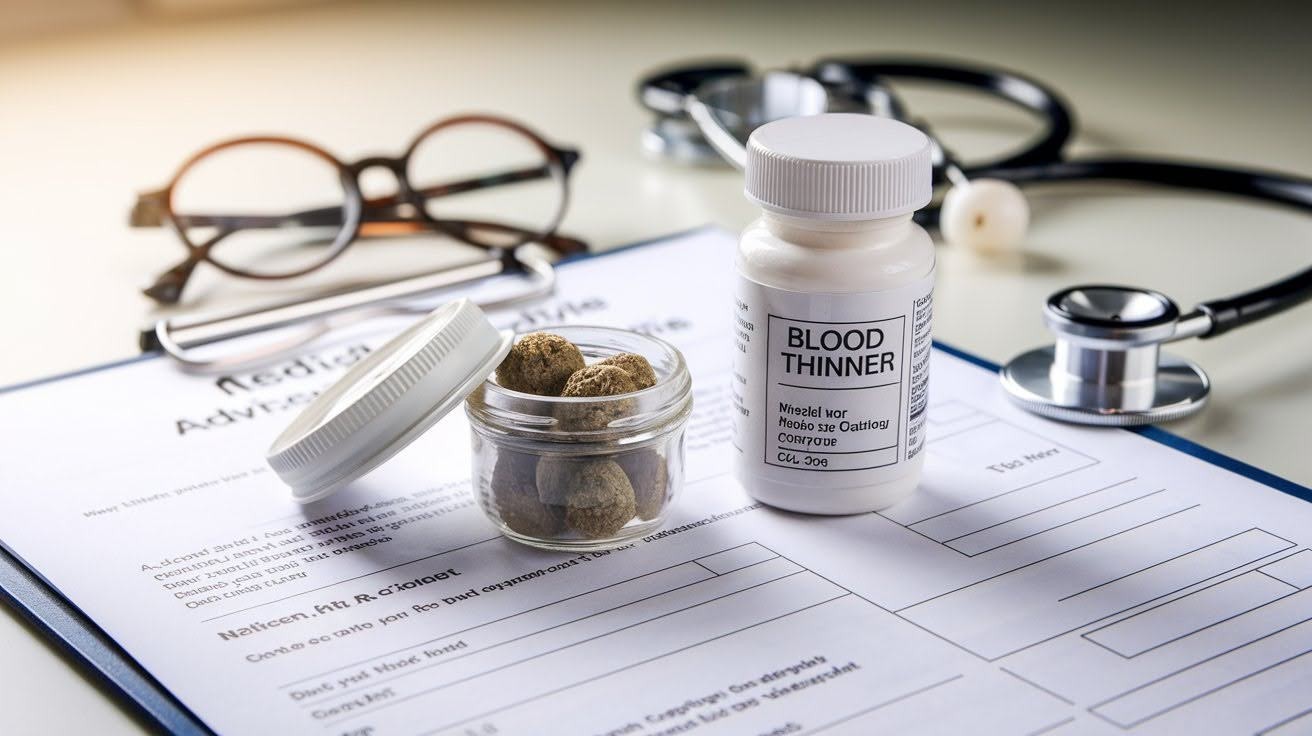
The research shows that edibles may cause a mild thinning of the blood. But here’s what you need to know. Dangerous interactions are possible when you mix edibles with prescribed blood thinners. The risks are real and documented.
Medical supervision is essential if you’re considering this combination. This isn’t a suggestion – it’s a requirement. Never stop taking your prescribed blood thinners without consulting your doctor. This could cause life-threatening blood clots.
The bottom line? The risks currently outweigh any potential benefits for most people.
Safe Approach for Patients
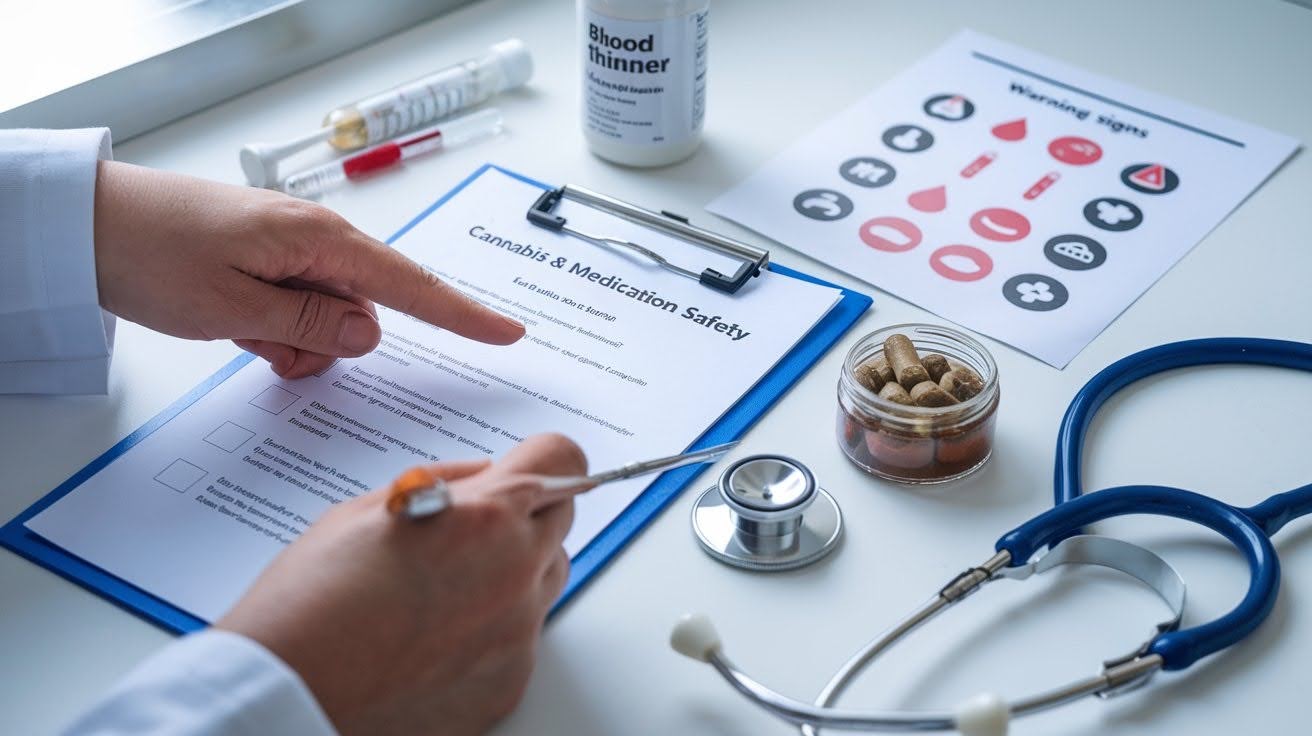
Talk to your healthcare provider first. This conversation needs to happen before you try any cannabis products. Be completely honest about all substances you’re using. Your doctor can’t help you if they don’t know the full picture.
If your doctor approves use, you’ll need regular monitoring. This means frequent blood tests and check-ups. Learn the bleeding warning signs:
- Unusual bruising
- Bleeding that won’t stop
- Blood in urine or stool
- Severe headaches
- Dizziness or weakness
Call your doctor immediately if you notice any of these symptoms. Here’s the reality: Most doctors will recommend avoiding this combination entirely. Your safety comes first.
Prescribed blood thinners are keeping you healthy for important medical reasons. Don’t risk your health for cannabis use. The potential consequences are too serious.
Conclusion
So, do edibles thin blood? The research suggests they might have mild blood-thinning effects, but the science is still developing. What we know for certain is that mixing edibles with prescribed blood thinners creates serious risks.
Your safety depends on medical supervision if you’re considering this combination. I hope this information helps you make an informed decision about your health. You now have the facts to have a productive conversation with your healthcare provider.
Remember: Your prescribed medications are protecting you for important reasons. Any changes should happen under professional guidance. Have questions or experiences to share?
Leave a comment below – your insights might help other readers facing similar decisions. Stay safe and make informed choices about your health.
Frequently Asked Questions
Do edibles thin blood?
Research suggests edibles may have mild blood-thinning properties. However, studies are limited and mostly conducted on animals. Further human research is needed to draw definitive conclusions.
Can I take edibles while on blood thinners?
You should never combine edibles with blood thinners without consulting a doctor. Dangerous interactions are possible, which could significantly increase bleeding risks.
How do edibles interact with warfarin?
Edibles can interfere with liver enzymes that process warfarin, potentially making it stronger and longer-lasting. This requires careful monitoring and possible dose adjustments.
What are the bleeding risks of mixing edibles and blood thinners?
Risks include excessive bleeding from cuts, internal bleeding, prolonged surgical bleeding, and difficulty with normal blood clotting. These effects can be life-threatening.
Should I tell my doctor about using edibles?
Yes, always inform your healthcare provider about all substances you use, including edibles. This information is crucial for your safety and proper medical care.

